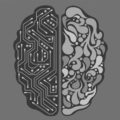The Evolving Landscape of AI and Its Impact on IAPP Exams 2024
The field of Artificial Intelligence (AI) is currently experiencing a surge of interest and excitement. However, regulations governing the use of AI and its applications are still in their early stages. As the team at CIPPTraining, we understand the importance of addressing the questions and concerns our students have about AI. In this blog, we will delve into the developments in AI and explore their implications for the Certified Information Privacy Professional/Europe (CIPP/E) exam. Nothing has changed for the CIPP/US and the CIPM exam yet. Specifically, we will focus on the three new components that have been added to the exam: the AI Act, machine learning, and ethical issues.
Understanding AI:
Artificial Intelligence refers to software developed using specific techniques and approaches that generate outputs, such as content, predictions, recommendations, or decisions, with the aim of influencing the environments it interacts with. AI has the potential to transform various industries, from healthcare to finance, and is being used to automate processes, enhance decision-making, and improve efficiency.
Legislative Developments:
European Union (EU):
In the EU, the General Data Protection Regulation (GDPR) applies when personal data is used in AI. If data from terminal equipment or cookies is involved, the ePrivacy Directive (later Regulation) also comes into play. Controller issues and transparency challenges are significant considerations in AI. The Information Commissioner’s Office (ICO) has published guidance on transparency, emphasizing the need for organizations to clearly communicate how AI systems are using personal data.
In 2021, a proposal was made for an AI Act in the EU. This Act aims to impose restrictions on AI systems, such as preventing the abuse of vulnerable subjects, systems that assign social scores to individuals, and real-time remote biometric identification systems in public spaces. Providers of high-risk AI systems would be required to meet various training, monitoring, quality, and compliance requirements. Lower-risk applications, including deep fakes, would need to adhere to specific transparency requirements. The text of the AI Act is still undergoing negotiations, but its implications for privacy professionals are significant.
Interesting Article on the EU AI Act:
For further insights into the EU’s AI Act, we recommend reading: “Europe’s Rulebook for Artificial Intelligence Takes Shape“.
United States (US):
The US Senate recently held a hearing to discuss the potential need for regulations regarding AI. This indicates growing consensus among lawmakers on the importance of establishing guidelines for the ethical and responsible use of AI. While the US does not have comprehensive federal legislation specifically addressing AI, various regulatory bodies have issued statements and guidelines to address specific concerns.
Earlier this year, key regulatory bodies in the US, including the Federal Trade Commission (FTC), the Department of Justice (DOJ), the Consumer Financial Protection Bureau (CFPB), and the Equal Employment Opportunity Commission (EEOC), released a joint statement emphasizing the need for fairness, transparency, and accountability in the use of AI. This statement highlights the growing recognition of the potential risks associated with AI and the importance of ensuring its responsible implementation.
Implications for the CIPP/E Exam:
One of the significant additions to the CIPP/E exam is the inclusion of the AI Act. Familiarizing yourself with the provisions and requirements outlined in this Act will be essential for exam preparation. Privacy professionals need to understand the impact of this legislation on AI applications, as it will shape how organizations collect, process, and use personal data in AI systems. Additionally, candidates should also be knowledgeable about machine learning, as it plays a crucial role in AI applications. Machine learning algorithms analyze vast amounts of data to identify patterns and make predictions or decisions. Understanding the underlying principles of machine learning, as well as its limitations and potential biases, is crucial for privacy professionals who work with AI systems.
Understanding the ethical implications associated with AI is another important aspect to consider. Ethical considerations encompass responsible data handling, privacy considerations, and potential biases in algorithms. Privacy professionals need to ensure that AI systems are designed and implemented in a way that respects individuals’ privacy rights, avoids unfair discrimination, and upholds ethical standards.
By staying up to date with the latest developments in AI legislation, technologies, and ethical concerns, our students can equip themselves with the necessary knowledge and skills to excel in the CIPP/E exam.
Conclusion:
As AI continues to advance and shape our world, regulations and guidelines are gradually being established to ensure its responsible and ethical use. The inclusion of AI-related topics in the CIPP/E exam reflects the importance of privacy professionals being well-versed in these developments. By understanding the AI Act, machine learning, and ethical considerations, our students can approach the exam with confidence, knowing they are equipped to address the challenges and opportunities presented by AI.
At CIPPTraining, we remain dedicated to keeping our students informed and prepared for the ever-evolving landscape of AI and privacy. By understanding the evolving legislative landscape, the technology behind AI, and the ethical considerations, privacy professionals can navigate this complex field and contribute to the responsible and ethical use of AI in their organizations. With the knowledge gained through our comprehensive resources, our students can thrive in their careers and make a positive impact on the evolving landscape of AI and privacy.



